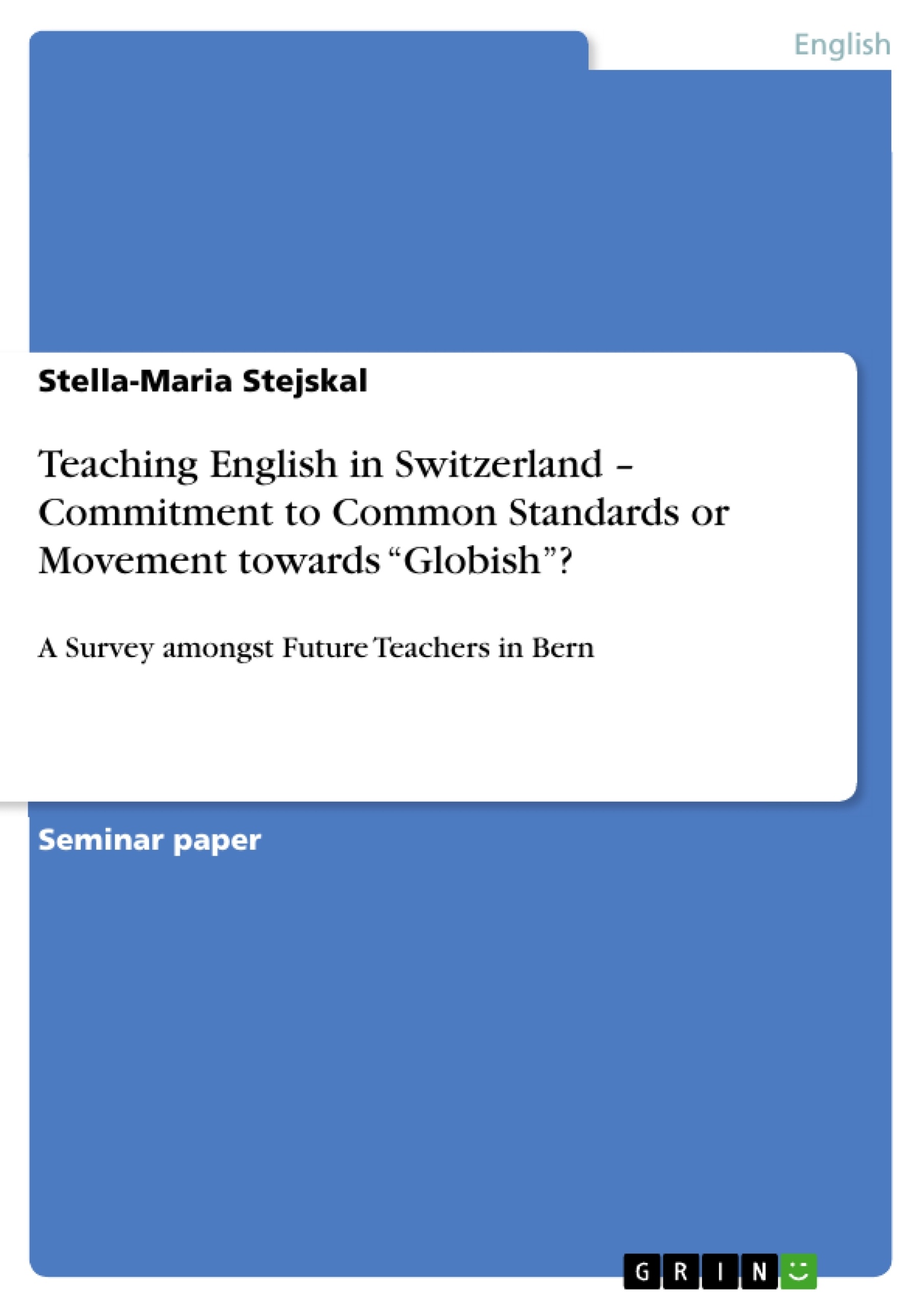This paper will present attitudes and consciousness of prospective English teachers in Bern towards these newly emerging forms of international English. A short overview of models of “reduced forms of English” aimed to fulfil international needs will be presented to provide background. Former studies carried out upon that aspect will then be discussed and the hypothesis for the study in Bern will be deduced. From this theoretical background, the study in Bern will be described in the main part of this paper and conclusions will be offered.
Table of Contents
- The theoretical approach: Learning English the global way - Overview of models and approaches
- Core approaches to English as an International Language (EIL)
- Core approaches to EIL pronunciation
- A core approach to EIL lexicon and grammar
- Globish
- Basic Global English
- The practical approach - What do teachers have to say?
- Previous studies
- The survey in Bern
- Results
- Self-Perception of NNS student teachers in Bern
- Varieties of English
- Teaching materials and learning aims
- Pronunciation
- Grammar
- General attitude towards EIL
- Conclusion
Objectives and Key Themes
This paper aims to explore the attitudes and awareness of prospective English teachers in Bern regarding newly emerging forms of international English. It will delve into different models of "reduced forms of English" designed to meet international needs, examining previous studies on the topic. The research will analyze a survey conducted in Bern, focusing on the self-perception of non-native speaker (NNS) student teachers, their views on varieties of English, teaching materials, and the role of pronunciation and grammar in international English. The study will then draw conclusions based on the collected data.
- The evolution of English as an International Language (EIL)
- The shift from native-speaker norms to a more inclusive model of English usage
- The role of pronunciation and grammar in EIL
- The impact of EIL on teaching materials and learning objectives
- The attitudes and perceptions of future English teachers towards EIL
Chapter Summaries
The first chapter provides an overview of different approaches to teaching English as an International Language (EIL), including core approaches to EIL pronunciation, lexicon, and grammar. It introduces concepts like "Globish" and "Basic Global English." The second chapter examines previous studies that explored the practical approach to teaching EIL. Chapter three details the survey conducted in Bern and its methodology. The fourth chapter presents the results of the survey, focusing on the self-perception of student teachers, their views on varieties of English, teaching materials, pronunciation, grammar, and their general attitude towards EIL.
Keywords
This research focuses on English as an International Language (EIL), the evolution of English usage, pronunciation in EIL, grammar in EIL, teaching materials for EIL, attitudes towards EIL, and the perspectives of future English teachers.
- Citar trabajo
- Stella-Maria Stejskal (Autor), 2007, Teaching English in Switzerland – Commitment to Common Standards or Movement towards “Globish”?, Múnich, GRIN Verlag, https://www.grin.com/document/111675




